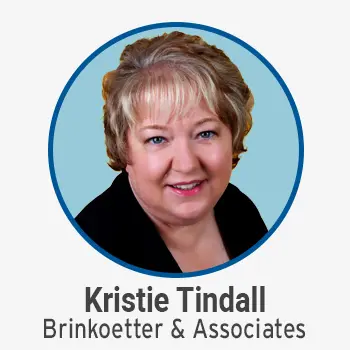Are You Considering Retirement?
Illinois REALTORS®’ Legal Hotline has received a number of calls from members wanting to slow their practices down or retire altogether. If you are in this camp, or know someone who is, what are some steps to take, and where should you begin if you are interested in knowing more? This article provides a list that can serve as a starting place as you consult with your attorney, your tax professional, and your errors & omissions (E&O) insurance carrier.
Consultation with your own professionals is essential. This list only includes general information because there are unique variables in any given business situation. This article does not consider a retiring broker’s financial plan. Those questions are for your financial planning professional. For purposes of this article, we assume you hold a managing broker’s license.
Five main factors to consider:
- Consult with professionals (attorney, accountant, insurance provider)
- Are you closing or “selling” your business?
- File retention
- Escrow account handling
- Consider whether you will retain your real estate license
- Consult with professionals
In addition to consulting with your financial planner so you feel comfortable that you have the financial ability to stop working full-time, you should also contact your attorney, your accountant and your E&O insurer to plan your exit from the active practice of real estate brokerage. Your attorney will advise you on topics such as notifications that you will need to give to any licensees that you or your company currently sponsor. He/she will help you determine time periods for which you keep your files. In addition, your attorney can consult with you, your financial and tax advisors about whether you should stop practicing altogether and whether you have options to sell or transfer your business to another person or entity. Indeed, you might retain ownership in the brokerage, but stop practicing in favor of becoming a “passive” owner in the business.
You should consult with your E&O carrier about “tail” or an extended coverage period that will provide insurance should a claim arise at some point after you cease practicing but relating to facts occurring while you were actively practicing real estate brokerage. A typical provision in your existing E&O policy will give you some period of time in which to decide whether to buy the extended endorsement and for how long. For example, you might need to decide within 90 days of ceasing operations to purchase “tail” coverage for a period of time (you could elect a number of years).
- Are you closing or “selling” your business?
You will discuss issues involving how to wind down your business, in order to close it; or maybe you will sell your business. To answer these questions, you must first consider how your business is organized. If you are a sole proprietor, you, the human, is the business. If you wish to sell this, you might be able to sell the company name, if it is different than your own, a list of contacts and perhaps your office building and furniture. If you are a sole proprietor and your company has current, active listings, you might wish to assign them to a buyer of your business. Before you do this, your attorney should review the language in the listing agreements to determine whether you can assign the rights to another company. If not, the seller clients will need to decide whether to sign new agreements with a new company.
On the other hand, if you are organized as an entity, i.e. a corporation or a limited liability company (LLC), you might be able to sell the underlying ownership in the form of stock or membership, as the case may be. If it makes sense for you to sell the underlying ownership, the stock or memberships, the entity is not changing at all. As a result, the new owners of the company will take over existing listings because the brokerage itself has not changed.
If you cease practicing as the designated managing broker, the company will need to designate a new managing broker for the company with the Illinois Department of Financial and Professional Regulation (IDFPR). Similar concepts will apply to the independent contractor/employment contracts that the company has with licensees the company sponsors.
Note if you are closing your doors, the Administrative Rules under the Illinois Real Estate License Act (RELA), require you to notify all licensees that your company sponsors in writing; as well as to notify all active clients, allowing licensees to find new sponsoring brokers and allowing clients to enter new brokerage agreements with new brokerage companies. The rules provide that this written notice be given within a “reasonable time” of your planned retirement or dissolution.
- File Retention
No matter how your business is organized, you will need to retain company files for some period of time. You should get specific advice from your attorney and tax advisor regarding applicable holding periods, depending on the record or document concerned. For example, IDFPR requires records be held for five years in the event an administrative complaint is filed. Under RELA, a private action alleging a breach of agency duties must be filed within two years. Still other statutes of limitation will apply to other types of action, i.e. 10 years is the statute of limitations on an action involving a written contract. There are different time limits for other actions, such as those relating to taxes or employment.
You can also refer to your current office policy manual for your company’s document retention and destruction schedule to help you answer your recordkeeping questions. Your attorney can help you determine what records should be retained, either in physical or electronic format; and even what documents must be destroyed. Be very careful that you are not retaining private information of others unless you have a valid or required legal reason for doing so.
- Escrow Accounts
If you maintain escrow accounts and you are closing your practice, you must notify IDFPR that you are closing your company and your escrow account. If there are funds present in the escrow account, you, your attorney and/or your accountant need to assess whether the funds must be submitted to the Illinois Treasurer’s Office, Division of Unclaimed Property, as required by the Illinois Revised Unclaimed Property Act.
As a side note, but nevertheless an important one, any broker holding escrow funds should consult with their attorney about annual reporting requirements under the Revised Unclaimed Property Act, as well as requirements to send unclaimed (or in the case of real estate brokerage, disputed) funds that are at least three years old, to the Division of Unclaimed Property.
If you are selling your business to a successor company, you may be able to transfer ownership of the escrow account to the successor entity. This process might not be so simple if you are a sole proprietor closing up shop. A new brokerage taking over your existing business might need authority from the parties to move escrow funds of transactions in progress. Unclaimed funds might need to be handled by the closing company’s attorney in the “winding up” process. If there are unclaimed funds, where due diligence (trying to get joint written direction from the parties) was unable to resolve the issue previously, the funds will need to go to the Division of Unclaimed Property if they are at least three years old.
- Consider whether you will retain your license
This decision is yours to make so long as you are physically and mentally able to keep your license current and active. You might keep your license with your existing brokerage entity, but voluntarily limit the scope of your practice. The existing entity will need a new designated managing broker. Or, you could sponsor yourself as a managing broker and limit yourself and your practice as you see fit. Again, consult with your professional advisors as to how active you will continue to be. You could associate yourself with another sponsoring broker. You do have an option, under RELA, to “step back” to a broker’s license. This will lessen the number of continuing education hours you will need in order to renew your real estate license. If you wish to do this consult IDFPR. Be aware that if you change your mind, you would need to start from the beginning as if you were getting the managing broker license for the first time.
Finally, you could elect to give up your real estate license and walk off into the sunset…hopefully on your way to the beach.
About the writer: Elizabeth A. (Betsy) Urbance, General Counsel and Vice President of Legal Services has served the association’s members as General Counsel since 2018 and prior to that she was Legal Hotline Attorney since 1994. Urbance is a 1984 graduate of Western Illinois University and received her law degree from the University of Missouri School of Law in 1987. She is licensed in both Illinois and Missouri.





 Create professional development programs that help REALTORS® strengthen their businesses.
Create professional development programs that help REALTORS® strengthen their businesses.
 Protect private property rights and promote the value of REALTORS®.
Protect private property rights and promote the value of REALTORS®.
 Advance ethics enforcement programs that increase REALTOR® professionalism.
Advance ethics enforcement programs that increase REALTOR® professionalism.
 Protect REALTORS® by providing legal guidance and education.
Protect REALTORS® by providing legal guidance and education. Stay current on industry issues with daily news from Illinois REALTORS®, network with other professionals, attend a seminar, and keep up with industry trends through events throughout the year.
Stay current on industry issues with daily news from Illinois REALTORS®, network with other professionals, attend a seminar, and keep up with industry trends through events throughout the year.



